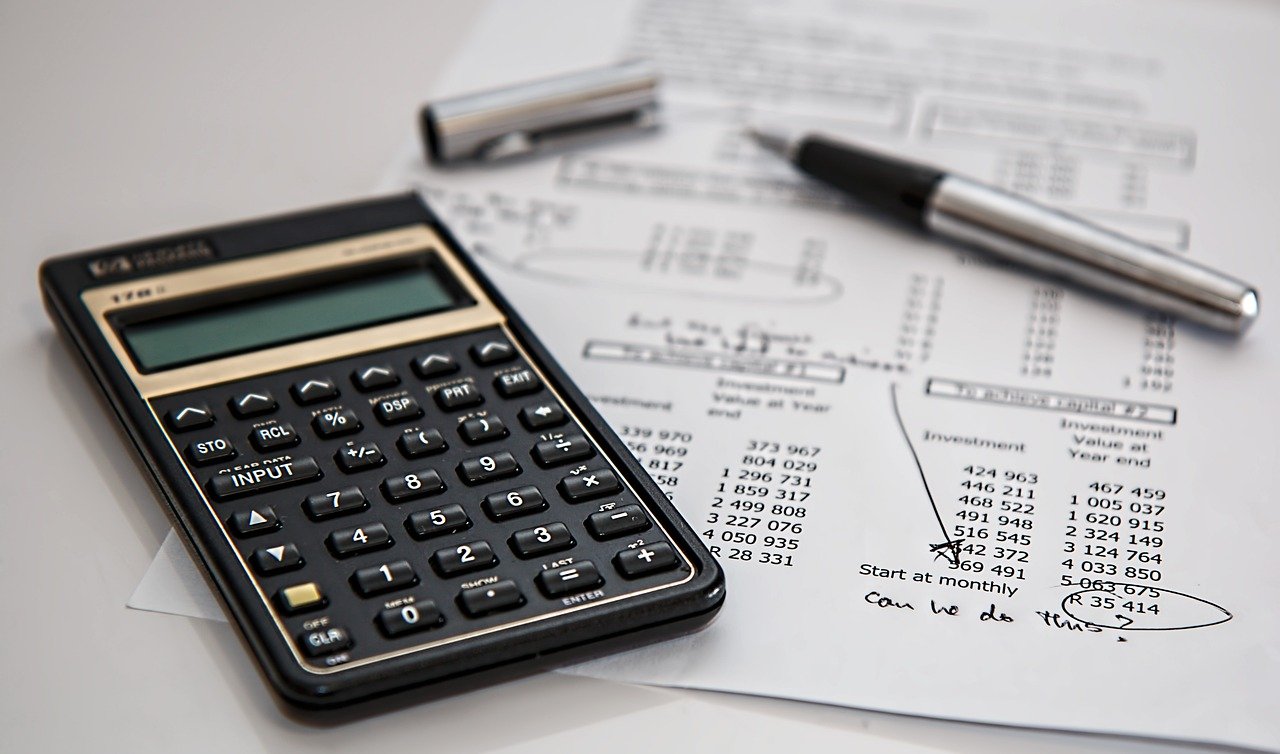So you’ve decided to take control of your finances and create a budget. Smart move! By creating a budget, you’ll be able to track your income, expenses, and ultimately make better financial decisions. This article ‘Achieve Financial Success: The Complete Guide to Budgeting and Financial Planning’, will guide you through the process of creating a budget step-by-step, helping you gain a clearer understanding of your financial situation and setting you on the path towards financial success. Let’s get started!

Why Create a Budget?
Creating a budget is an important step in taking control of your finances and achieving your financial goals. By creating a budget, you gain a clear understanding of your financial situation, set specific goals, track your spending, and prepare for unexpected expenses. It is the foundation for managing your money effectively and building a secure financial future.
Understand Your Finances
The first benefit of creating a budget is gaining a better understanding of your financial situation. By taking the time to gather all your financial information, such as bank statements, bills, and pay stubs, you can see the complete picture of your income and expenses. This allows you to identify areas where you may be overspending or where you have the opportunity to save.
Set Financial Goals
Having clear financial goals is crucial for creating a budget that aligns with your aspirations. Whether it’s saving for a down payment on a house, paying off debt, or traveling the world, a budget helps you allocate your resources towards these goals. By setting specific, measurable, achievable, relevant, and time-bound (SMART) goals, you can stay motivated and focused on your financial journey.
Track Your Spending
A budget enables you to track your spending and gain a better understanding of where your money is going. By listing all your expenses, you can easily see how much you are spending on different categories such as housing, transportation, groceries, entertainment, and more. Tracking your spending helps you identify potential areas to cut back on and allows you to make informed decisions about your money.
Prepare for Unexpected Expenses
One of the most important aspects of budgeting is preparing for unexpected expenses. Life is full of surprises, and having an emergency fund is crucial for tackling unforeseen financial challenges such as medical bills, car repairs, or job loss. By including an allocation for emergencies in your budget, you can build up a safety net and avoid derailing your financial progress when unexpected expenses arise.
Getting Started
Before diving into the nitty-gritty of creating a budget, there are a few initial steps to take.
Gather Financial Information
To create an accurate budget, you need to have a clear picture of your financial situation. Start by gathering all relevant financial documents such as bank statements, credit card statements, bills, and pay stubs. Having these documents at hand will help you accurately calculate your income and expenses.
Calculate Your Income
Once you have your financial information in one place, determine your total income. This includes your salary, wages, and any additional sources of income such as rental income or freelance work. Having a clear understanding of your income will allow you to allocate funds appropriately in your budget.
List Your Expenses
The next step is to list all your expenses. This includes both fixed expenses, which are recurring and usually stay constant month-to-month, and variable expenses, which may fluctuate or occur irregularly. Examples of fixed expenses include rent/mortgage payments, loan payments, and insurance premiums. Variable expenses can include groceries, entertainment, dining out, and transportation costs. The more thorough you are in listing your expenses, the better you will be able to budget effectively.
Creating Categories
Once you have gathered your financial information, calculated your income, and listed your expenses, it’s time to organize your budget into categories.
Fixed Expenses
Start by categorizing your fixed expenses. These are the expenses that remain constant month-to-month and are necessary for your daily living. Examples include rent/mortgage payments, utilities, phone bills, and loan repayments. Categorizing these expenses helps you prioritize them and ensure they are accounted for in your budget.
Variable Expenses
Moving on to variable expenses, these are the expenses that may fluctuate or occur irregularly. Examples include groceries, transportation costs, entertainment, dining out, and personal care items. It is important to allocate a realistic amount for each variable expense category and adjust it based on your actual spending patterns.
Savings and Investments
Don’t forget to include a savings category in your budget. Allocating a portion of your income towards savings and investments is essential for building a secure financial future. Whether it’s saving for retirement, an emergency fund, or a specific goal, setting aside a specific amount each month helps you make progress towards your financial aspirations.
Debt Repayment
If you have any outstanding debts, such as credit card debt, student loans, or a car loan, allocate a category for debt repayment in your budget. Including a specific amount towards debt repayment allows you to accelerate your progress towards becoming debt-free. Make sure to prioritize debts with higher interest rates to save on interest payments in the long run.
Discretionary Expenses
Lastly, allocate a category for discretionary expenses. These are the expenses that are not essential but add enjoyment to your life, such as dining out, vacations, hobbies, and entertainment. Our discretionary expenses allow us to enjoy the present while still making progress towards our financial goals. However, it’s important to allocate a realistic amount that fits within your overall budget.
Determining Priorities
Once you have categorized your expenses, it’s time to determine your budget priorities.
Identify Essential Expenses
Start by identifying your essential expenses – these are the expenses you cannot live without. This includes things like rent/mortgage payments, utilities, food, transportation, and minimum debt repayments. Prioritizing these expenses ensures that you cover your basic needs and maintain financial stability.
Allocate Funds for Savings and Debt Repayment
The next step is to allocate funds towards savings and debt repayment. Set specific goals for each category, whether it’s saving a certain percentage of your income or paying off a specific debt by a certain date. By making savings and debt repayment a priority in your budget, you can work towards achieving long-term financial security and freedom from debt.
Allocate Remaining Funds for Discretionary Expenses
Once you have allocated funds for essential expenses, savings, and debt repayment, you can then allocate the remaining funds for discretionary expenses. By setting limits for discretionary expenses, you ensure that you maintain control over your spending and prioritize your long-term financial goals.

Setting Realistic Limits
Now that you have determined your budget priorities, it’s important to set realistic limits for your expenses.
Consider Your Income
When setting limits for each expense category, it’s crucial to consider your income. Be realistic about what you can afford and only allocate funds that you know you can comfortably spend. Avoid the temptation to overspend or stretch your limits, as this can lead to financial stress and may derail your progress.
Evaluate Spending Habits
Take a close look at your spending habits and identify areas where you can cut back or make adjustments. Are there any recurring expenses that you can eliminate? Are there cheaper alternatives for certain products or services? Evaluating your spending habits helps you identify potential areas for savings and ensures that you are making the most of your income.
Review and Adjust
Budgeting is not a one-time task but an ongoing process. It’s important to review your budget regularly and make adjustments as needed. Life circumstances and priorities may change, and your budget should reflect those changes. By regularly reviewing and adjusting your budget, you can stay on track with your financial goals and make the most of your money.
Automating Your Budget
To make budgeting easier and more convenient, consider automating certain aspects of your budget.
Explore Budgeting Apps
There are numerous budgeting apps available that can help you track your spending, set financial goals, and analyze your financial habits. These apps often sync with your bank accounts and credit cards, making it easy to track your expenses in real-time. Explore different budgeting apps and find one that suits your needs and preferences.
Track Expenses with Spreadsheets
If you prefer a more hands-on approach, you can track your expenses using spreadsheets. Create a budget spreadsheet that includes your income, expenses, and savings goals. Update it regularly to keep track of your spending and monitor your progress towards your financial goals. Spreadsheets can provide a more detailed and customizable view of your budget.
Consider Automatic Transfers
To make saving and debt repayment more seamless, consider setting up automatic transfers. Schedule automatic transfers from your checking account to your savings account each month to ensure that you consistently save. Similarly, set up automatic payments for your debt to avoid late fees and keep your repayment on track.

Monitoring and Adjusting
Once you have created and automated your budget, it’s essential to monitor your progress and make adjustments as needed.
Review Your Budget Regularly
Set aside time each month to review your budget and track your spending. Compare your actual expenses to your budgeted amounts and identify any areas where you may have overspent or underspent. Assess your progress towards your financial goals and make any necessary adjustments to stay on track.
Track Your Spending
Continue tracking your spending to maintain awareness of where your money is going. This can be done using the budgeting app or spreadsheet you have chosen, or even by keeping receipts and recording them manually. By tracking your spending, you can identify any potential areas of improvement and make informed decisions about your money.
Adjust as Needed
Life is dynamic, and your budget should adapt accordingly. If you experience changes in your income, expenses, or financial goals, adjust your budget accordingly. Be flexible and open to making changes when necessary, as this will help you maintain financial stability and work towards your long-term objectives.
Dealing with Unexpected Expenses
No matter how carefully you budget, unexpected expenses can still arise. Here are a few strategies to handle these situations.
Build an Emergency Fund
Having an emergency fund is crucial for dealing with unexpected expenses. Aim to save 3-6 months’ worth of living expenses in an easily accessible account. This fund will act as a safety net during emergencies and prevent you from derailing your budget or falling into debt.
Consider Insurance Options
Insurance is another important component of managing unexpected expenses. Evaluate your insurance coverage for essentials such as health, home, and auto insurance. Make sure your policies adequately protect you and your assets. It’s also worth exploring other insurance options like life insurance or disability insurance, depending on your individual circumstances.
Adjust Your Budget to Accommodate Unexpected Expenses
In the event of an unexpected expense, you may need to make adjustments to your budget. This may involve temporarily reducing or eliminating discretionary expenses or reallocating funds from other categories. By being proactive and adaptable, you can manage unexpected expenses without compromising your long-term financial goals.
Seeking Professional Help
If you find yourself struggling with budgeting or managing your finances, don’t hesitate to seek professional help.
Consulting a Financial Advisor
A financial advisor can provide expert guidance and advice tailored to your specific financial situation. They can help you create a comprehensive financial plan, review your budget, and offer strategies for achieving your goals. A financial advisor’s experience and expertise can greatly enhance your financial journey.
Working with a Credit Counselor
If you are burdened with significant debt or struggling to manage your finances, a credit counselor can provide valuable assistance. They can work with you to create a debt repayment plan, negotiate with creditors, and offer strategies for improving your financial situation. Credit counseling services are designed to empower individuals to overcome financial challenges and develop healthy financial habits.
Sticking to Your Budget
Creating a budget is one thing, but sticking to it is another. Here are a few tips to help you stay disciplined and achieve success with your budget.
Stay Disciplined
Sticking to a budget requires discipline and commitment. Remind yourself of the financial goals you have set and the reasons why you are budgeting. Stay focused on your long-term objectives and avoid impulsive spending that may derail your progress. The more disciplined you are, the faster you will achieve financial stability and success.
Avoid Temptation
In a world filled with advertising and consumerism, it’s easy to be tempted by unnecessary purchases or lifestyle inflation. Keep your goals in mind and avoid succumbing to unnecessary expenses that do not align with your budget or aspirations. Be mindful of your spending habits and ask yourself if a purchase is truly necessary before parting with your hard-earned money.
Celebrate Milestones
Budgeting and managing your finances can be challenging, so don’t forget to celebrate milestones along the way. Whether it’s paying off a debt, reaching a savings goal, or staying within your budget consistently for a period of time, take the time to acknowledge and celebrate your achievements. This positive reinforcement will motivate you to continue your financial journey and make smart money choices in the future.
Creating a budget is a powerful tool for taking control of your finances. By understanding your financial situation, setting goals, tracking your spending, and preparing for unexpected expenses, you can build a solid foundation for financial stability and success. Take the time to gather your financial information, categorize your expenses, set realistic limits, and automate your budgeting process. Regularly monitor and adjust your budget, and seek professional help if needed. Stay disciplined, avoid temptation, and celebrate your successes along the way. With a well-planned budget and a determined mindset, you can achieve your financial goals and create a brighter financial future for yourself.

